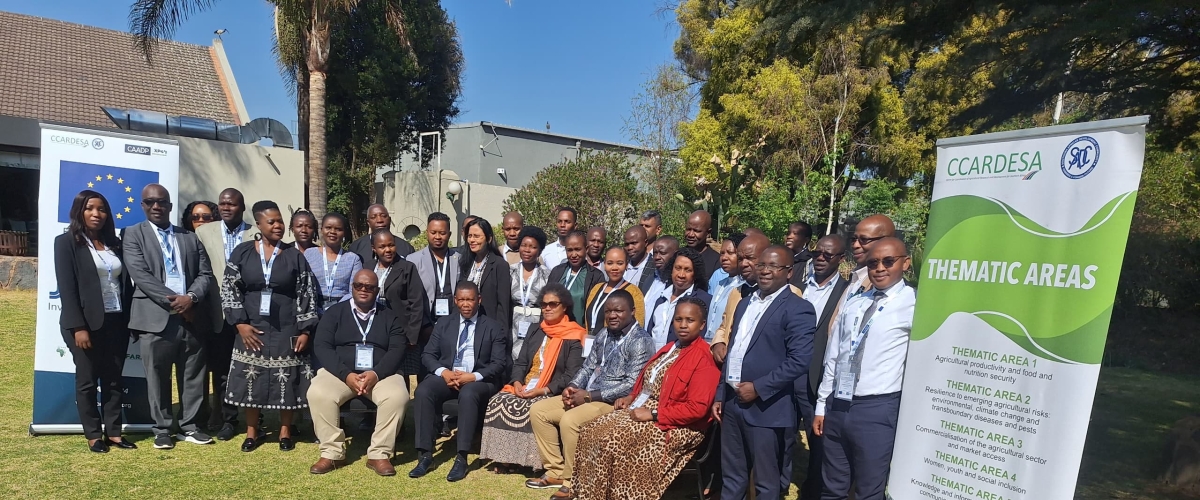
The Southern African Development Community (SADC) and the Center for Coordination of Agricultural Research and Development in Southern Africa (CCARDESA) recently teamed up to strengthen countries’ capacity to report on the Comprehensive Africa Agriculture Development Programme (CAADP) 5th cycle Biennial Review (BR) reporting. This initiative aligns with the African Union's (AU) recommitment to the Malabo Declaration, adopted in June 2014. The Malabo Declaration outlines seven key commitments aimed at transforming African agriculture by 2025, including ending hunger, halving poverty through agriculture, boosting intra-African trade in agricultural commodities, enhancing resilience to climate variability, and mutual accountability for results.
The Biennial Review (BR) serves as a key mechanism for tracking and assessing the progress of the CAADP implementation. Through this process, countries are held accountable for their commitments to agricultural development. In 2023, the AU Commission completed the 4th CAADP Biennial Review, endorsed at the 36th Ordinary Session of the Assembly of AU Heads of State in February 2024. However, the results of the 4th BR were sobering: no SADC country was on track to meet the Malabo targets by 2025, which was true across the continent. Despite this, countries like Eswatini, Malawi, Tanzania, and Zimbabwe showed promising progress, scoring above 5 out of 10 on the Africa Agriculture Transformation Scorecard (AATS) based on 43 indicators.
The disparities between nations were stark. Countries like Angola and Botswana experienced a significant decline in their scores, while others, such as Comoros, Mozambique, and Zimbabwe, demonstrated marked improvements. "These figures," noted Mr Aukland Kuteya, a BR expert, "underscore the urgent need for governments to bolster investments in agricultural development and address data quality challenges."
As part of the preparation for the 5th BR cycle, the AU Commission developed a comprehensive roadmap to address challenges identified in previous cycles, such as data availability, the coordination of reporting mechanisms, and improving the tools used for BR reporting.
To support this, CCARDESA and SADC organized a regional training workshop for national focal points and regional experts from 02-6th September 2024. Held in Johannesburg, South Africa, the workshop focused on building a unified understanding of the BR process, improving data quality, and familiarizing participants with the updated online data entry tools and the e-BR platform.
Duncan Saminkwa, Senior Programme Officer at the SADC Secretariat’s Food, Agricultural, and Natural Resources (FANR) Directorate, outlined the workshop's objectives, emphasizing the importance of improving data collection and coordination. "The goal," he said, "is not only to ensure countries are well-equipped for the 5th BR but also to foster a culture of transparency and accountability in agricultural reporting." The workshop provided a platform to train participants on technical BR tools, indicator specifications, and the e-BR system. It also introduced strategies for better communication and advocacy around the BR results.
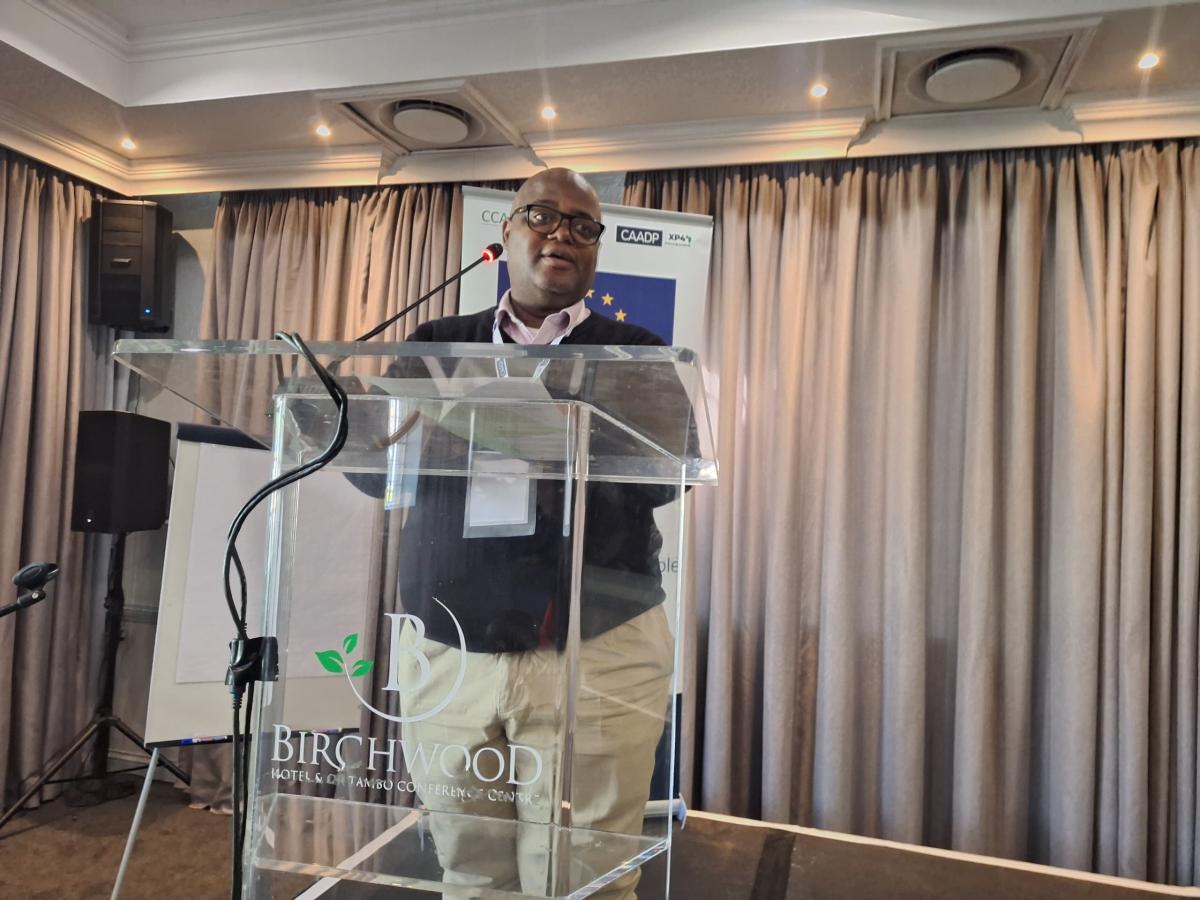
In her opening remarks, South Africa’s Director of Agriculture, Ms. Bongeka Mdleleni, welcomed delegates and reaffirmed her country’s commitment to the Malabo Declaration. "This is a rare opportunity," she said, "to improve our standing in the next Biennial Review and ensure that we are on track to meet the Malabo commitments."
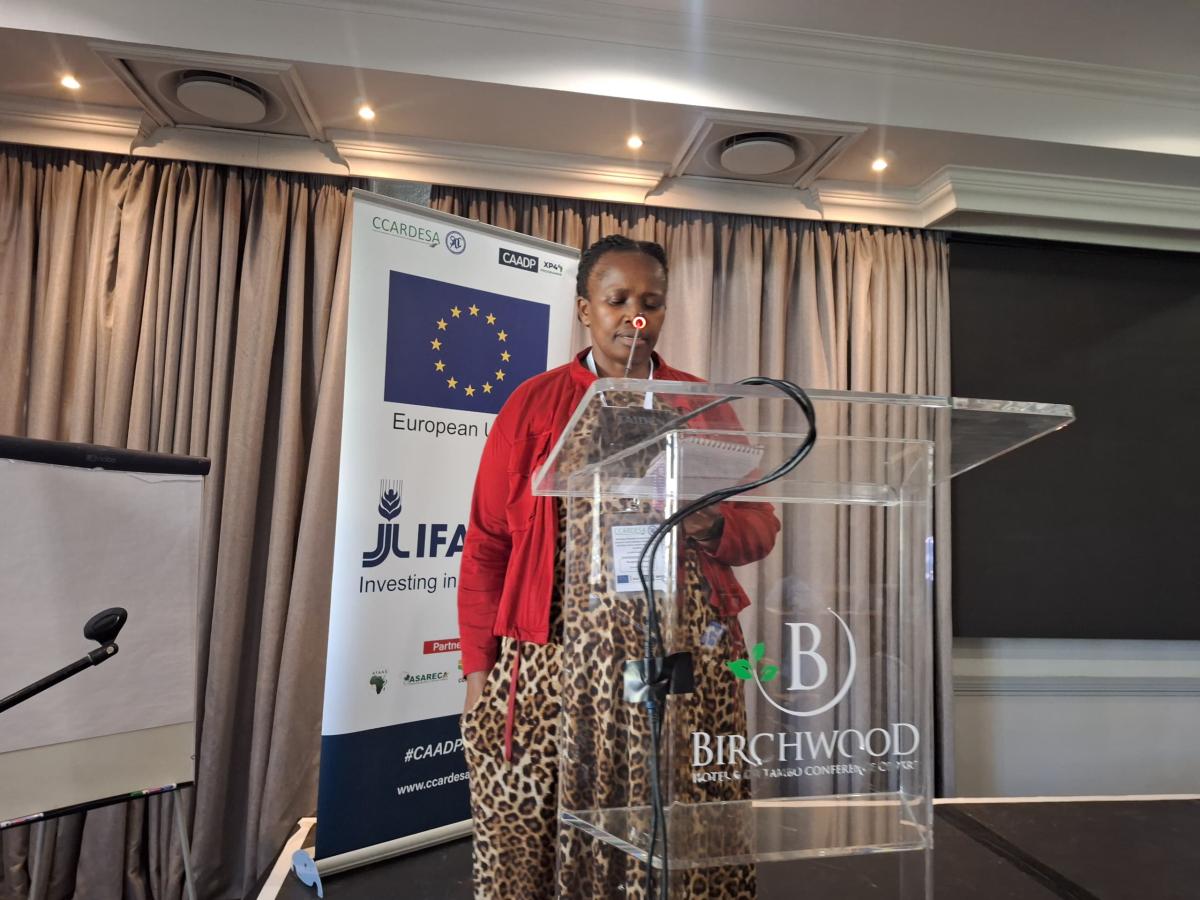
Similarly, Dr. Diana Earnshaw, CCARDESA Board member from Eswatini, emphasized the need for more action: "SADC countries have not been performing well, which is why we are here today. CCARDESA has been working tirelessly to raise awareness since 2022. This is our mandate—to ensure food security in Africa."
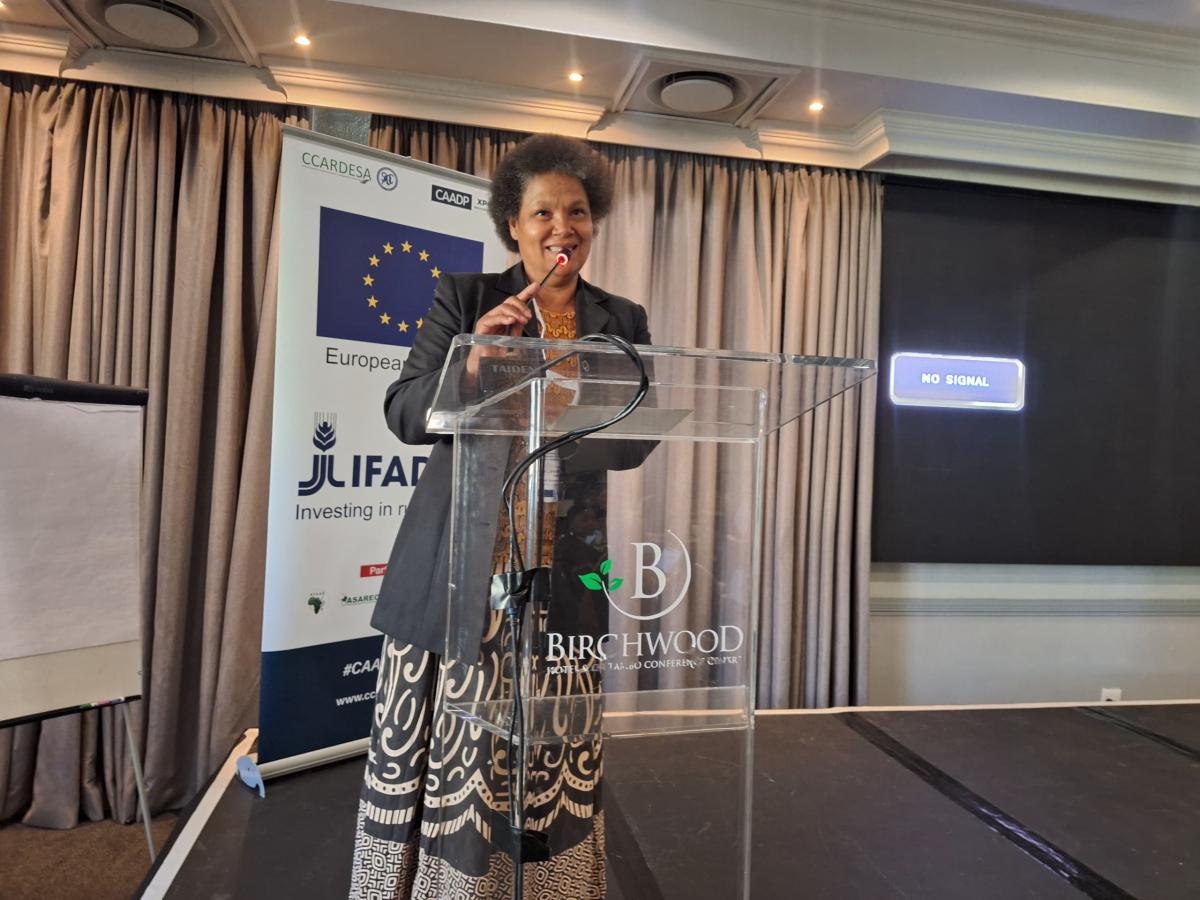
One of the key takeaways from the workshop was the critical importance of data. Dr. Greenwell Machaya, a key facilitator, reminded participants that "without reliable data, we cannot accurately measure our progress or improve our agricultural policies. Data is the foundation of accountability." His remarks echoed throughout the event as experts from across the region guided member states on accurately reporting on the BR indicators.
A workshop highlight was a presentation by Mr. Babacar Ceesay, Senior Manager of Information Systems at AKADEMIYA2063, who introduced the provisional electronic biennial evaluation tool, e-BR. Ceesay addressed participants' concerns and provided clear guidance on how to use the tool for better reporting.
Representatives from nearly all SADC member states attended the meeting, except for Comoros, the Democratic Republic of Congo, Seychelles, and Tanzania, which are serviced under the East African Community (EAC) for CAADP. Participants included national focal points, sector representatives, regional experts, and officials from the SADC Secretariat and CCARDESA.
Countries expressed confidence in reporting more effectively for the 5th BR cycle, with many challenges seemingly resolved. "This is the eighth meeting organized by CCARDESA under its CAADP-XP4 Programme," remarked Dr. Baitsi Podisi, CAADP-XP4 Coordinator. He reiterated CCARDESA’s commitment to mobilizing resources and supporting countries to improve their BR performance. "We remain hopeful," he added, "that with continued support, African countries will rise to meet the Malabo targets.". At the same time, Mr. Podisi highlighted the challenges countries face, including youth unemployment and drought, and the importance of engaging national statistics bureaus and finance departments as important stakeholders who can contribute to the success of the BR reporting.
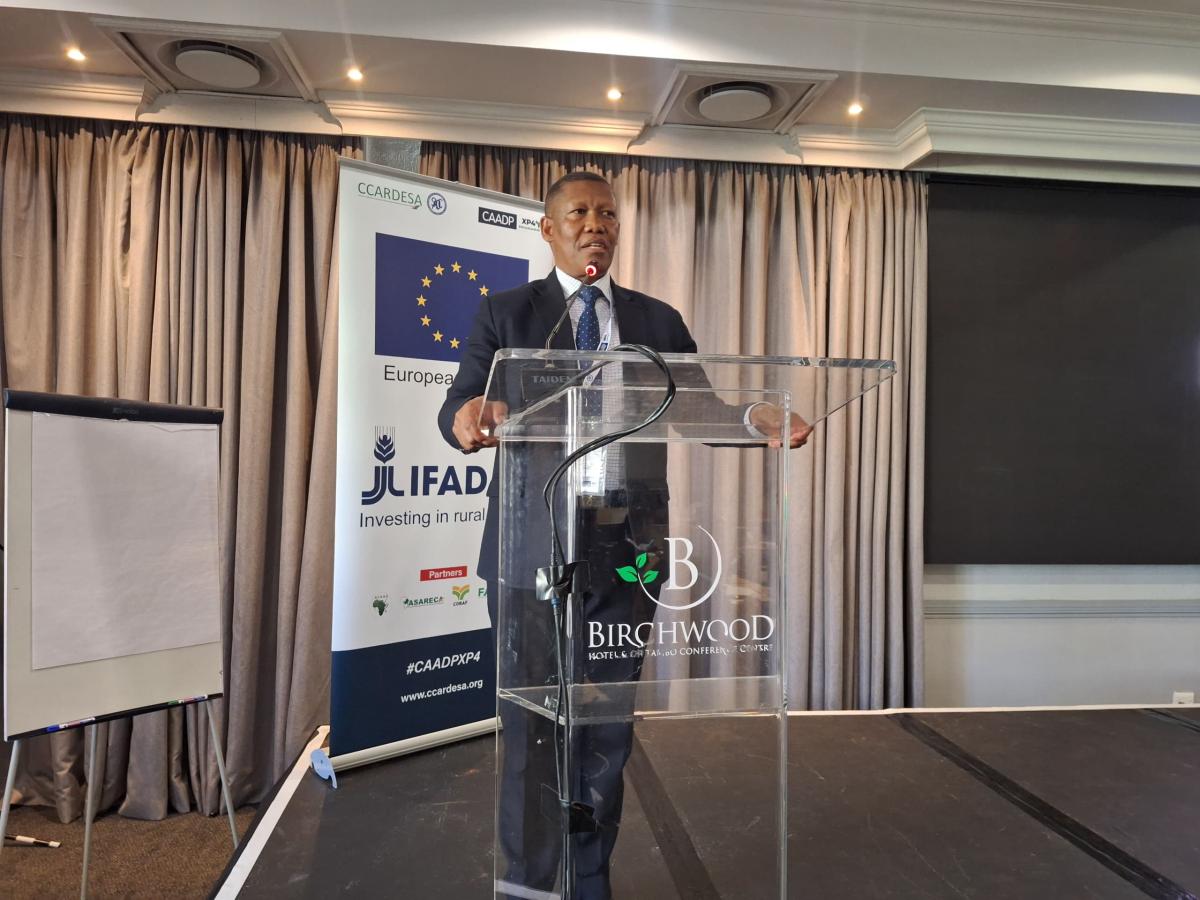
As the meeting concluded, there was a sense of optimism among the participants. Dr. Moraka Makhura expressed deep gratitude to CCARDESA and SADC for their invaluable support, acknowledging their role in fostering a collaborative learning environment. He emphasized the importance of continued learning and bringing younger experts into the fold. Opportunities such as the upcoming meeting in Casablanca will further the process of critical analysis, review, and training, particularly for national focal points to improve data collection. Dr. Moraka stressed the need for a strategic approach to achieve Malabo's goals and enhance performance.
Mr. Esaiah Tjelele, a SADC Representative, thanked CCARDESA for resources and collaboration, expressed appreciation for the experts’ efforts and hoped for greater regional integration, and called for more financial support to push the work forward. He applauded the collaborative spirit and dedication throughout the discussions.
The workshop was financially supported by the European Union through the IFAD-administered grant to CCARDESA through the CAADP-XP4 Programme, demonstrating the international commitment towards supporting Africa's agricultural transformation. With renewed energy and a clear roadmap, the 5th Biennial Review cycle is set to build on past lessons, drive agricultural development, and help African countries meet their ambitious goals.





